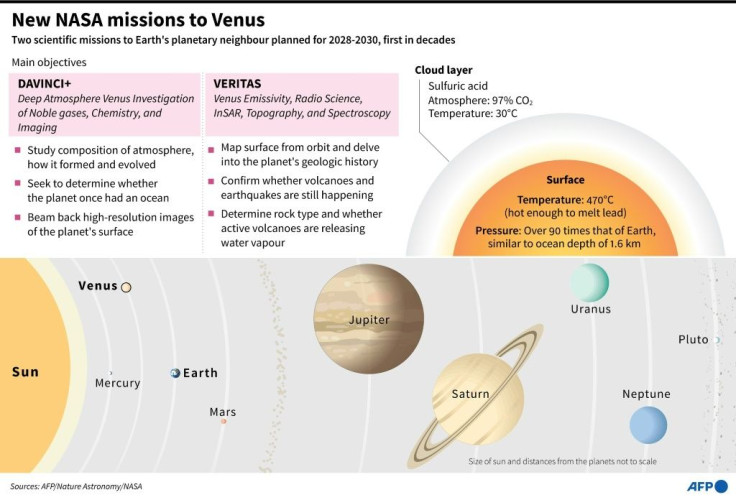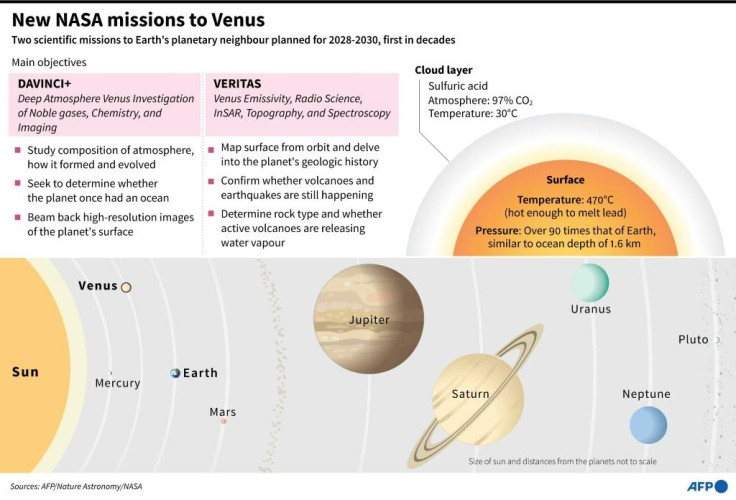EnVision: What To Know About ESA's Latest Mission To Venus

The European Space Agency (ESA) is preparing to send an orbital spacecraft to Venus as part of its EnVision mission. Let us have a look at what this mission is all about.
ESA announced the EnVision mission last year to explore the secrets of Venus and understand why it is so different despite being very close to Earth. Venus is the most Earth-like planet in our solar system – it is at a similar distance from the Sun and of almost the same size, yet is completely uninhabitable.
At some point in history, the two planets diverged to evolve very differently. Therefore, Venus may act as a natural laboratory for studying how habitability evolved in our Solar System.
The mission will consist of "a rectangular three-axis stabilized satellite weighing 2.5 tonnes at launch, measuring approximately 2 m x 2 m x 3 m in the stowed configuration, with two deployable solar arrays," the ESA noted in a release.
In collaboration with NASA's upcoming DAVINCI+ (Deep Atmosphere Venus Investigation of Noble gases, Chemistry and Imaging) and VERITAS (Venus Emissivity, Radio Science, InSAR, Topography, and Spectroscopy) missions, EnVision mission is expected to make inroads into developing a better understanding of Venus.
"EnVision benefits from collaboration with NASA, combining excellence in European and American expertise in Venus science and technology, to create this ambitious mission," said Günther Hasinger, ESA Director of Science. "EnVision further strengthens Europe's role in the scientific exploration of the Solar System. Our growing mission fleet will give us, and future generations, the best insights ever into how our planetary neighborhood works, particularly relevant in an era where we are discovering more and more unique exoplanet systems."
EnVision is different from other Venus exploratory missions because it will be the first to study the planet from its inner core to its upper atmosphere. It aims to provide a holistic view of Venus, analyzing the planet's history, activity and climate, according to the agency.
Scientists are hoping that the EnVision mission will help answer some key questions about the Earth's twin. It will focus on finding how tectonically active the planet is, evidence on the presence of water in the past, the role of geological processes in shaping its atmosphere and climate, the heat loss mechanism on the planet and how its surface and interior evolved.
Expected to launch in the early 2030s, the mission will last for four years. The launch will take place from ESA's Spaceport in Kourou, French Guiana on an Ariane 62 launch vehicle. The spacecraft will reach Venus after a 15-month flight.

Photo: AFP / Alain BOMMENEL





















